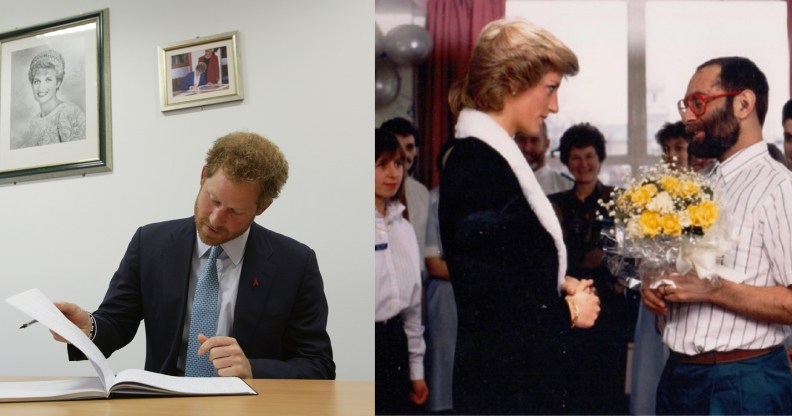Prince Harry: My mother wouldn’t have imagined the amazing progress we’ve made fighting AIDS

Prince Harry has delivered an emotional speech to the International AIDS Conference in Durban.
Prince Harry has recently focused more of his engagements around HIV – even taking a HIV test himself in a Facebook Live video earlier this month.
The fifth-in-line to the throne has visited a number of HIV clinics in recent months, and has also spoken about his late mother’s work on the issue.
He said: “She started very punchy [on AIDS]. She smashed the stigma around HIV on more than one occasion. It had a huge impact, and a huge impact on my life as well.”
Speaking at the International AIDS Conference in Durban, he celebrated that HIV is no longer a “death sentence” as it was when his mother famously championed the cause.
He said: “Over the last decade working in Lesotho [through charity Sentebale], I’ve seen first hand the amazing progress that has been made in treating the physical and mental effects of HIV.
“These advances in halting transmission, expanding access to treatment, and improving provision of testing are the successes of many of the people and organisations gathered here at this conference.
“At the time of the first International AIDS conference, HIV was a death sentence. Treatment was not widely available in the developed world, let alone in poorer regions.
“Stigma kept HIV-positive people from talking openly about their condition and kept vulnerable people from having the courage to step into a clinic and ask for a test.
“But thanks to the work of leaders in the fight against HIV – people like Nelson Mandela, Sir Elton John, the brave activists of TAG and ACT UP, people like Dr Peter Piot, and like my mother, Princess Diana – we have made huge progress.”
The Prince continued: “When my mother held the hand of a man dying of AIDS in an East London hospital, no one would have imagined that just over a quarter of a century later treatment would exist that could see HIV-positive people live full, healthy, loving lives.
“But we now face a new risk – the risk of complacency.
“As people with HIV live longer, AIDS is a topic that has drifted from the headlines. And with that drift of attention, we risk a real drift of funding and of action to beat the virus.
“We cannot lose a sense of urgency, because despite all the progress we have made, HIV remains among the most pressing and urgent of global challenges – 1.1m people died of AIDS and 2.1m were infected last year alone.
“HIV remains the number one cause of death amongst adolescents in sub-Saharan Africa. In my own country, infection rates are still rising amongst important groups despite the availability of instant testing and universal access to treatment.”
He added: “So it is time for a new generation of leaders to step forward.
“It is time for us to step up to make sure no young person feels any shame in asking for an HIV test.
“It is time for us to step up to make sure that girls and boys with HIV aren’t kept from playing with their friends, classmates, and neighbours.
“It is time for us to step up and acknowledge that stigma and discrimination still act as the greatest barrier to us defeating this disease once and for all.”

